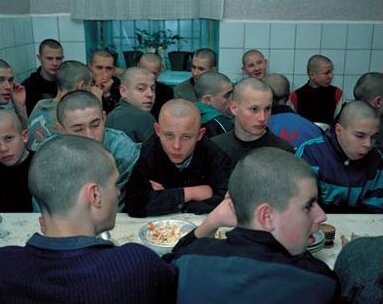
Lunchtime at the camp for 14 to 18 year-old boys
[I.K. 22. Tchournojar] |
The gulags of Siberia are no more. Solzhenitsyn's nightmare of the absurd has thankfully vanished. The prisons are still there, of course, with plenty of inmates — probably more than a million.
It is there you will find a 15-year-old boy who is serving three and a half years for stealing two hamsters from a Moscow pet shop. Or the mother of four who stole 12 cabbages — and was sentenced to four years in Siberia.
So the lunacy still exists, but it is now officially apolitical. But, clearly, it does not pay to be a poor thief in Russia, since you will not have the resources to avoid the interminable train ride to the East when you are caught.
Seeing is not believing
Carl De Keyzer took that journey to photograph the prisons today. With two army colonels as his shadows, one to the left and one to the right, he photographed what he was allowed to see — and no more.
Despite these strictures, he has revealed a kind of winter wonderland, a "Disneyland" where all normal credibility is suspended. Look, for example, at the tattoos in the photographs. "Where do they come from?" he asked. The answer: "What tattoos? There are no tattoos. They are illegal." So they don't exist. Your eyes deceive you.
In living color
It has been said that the collective memory is black and white. In "Zona", Carl De Keyzer has elaborated on the brocaded fantasy of the Siberian prisons by using brilliant colour — as if from a hallucinatory dream.
About Carl De Keyzer
Carl De Keyzer was born in Ghent, Belgium in 1958. He became a freelance photographer while teaching at the Royal Academy of Fine Arts between 1982 and 1989. He has been a member of Magnum since 1994.
He contracted tuberculosis during his first visit to Siberia — and returned heavily dosed with antibiotics and unable to drink alcohol. "Unfortunately you can refuse a girl, but to refuse a vodka is the worst of social evils. I had a hard time of it," he remembers.
|
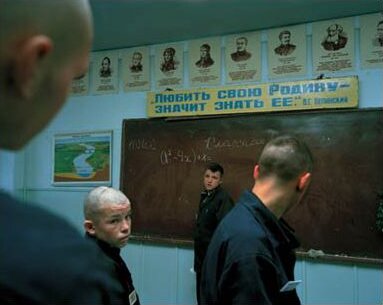
Chemistry class at the youth camp [Kansk]
|
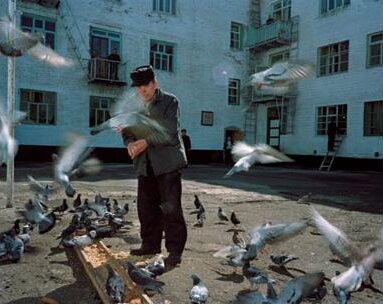
Prisoner feeding the birds
[I.K. 6. Krasnoyarsk]
|
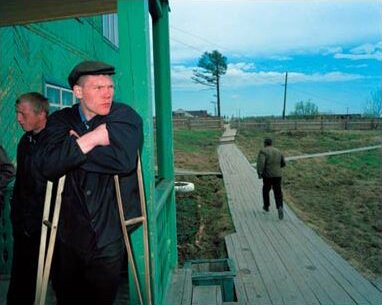
Prisoner waiting outside the warden's office
[I.K. 26. Hayruzovka]
|
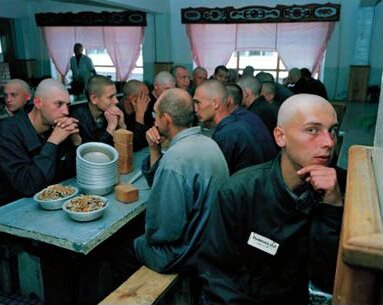
Prisoners at lunch
[I.K. 27. Krasnoyarsk]
|
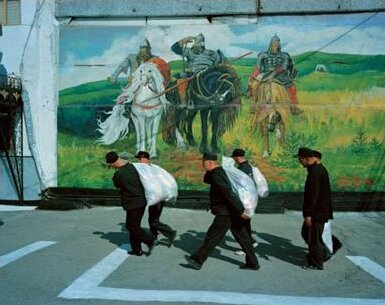
Prisoners carrying sacks of mail
[I.K. 27. Krasnoyarsk]
|
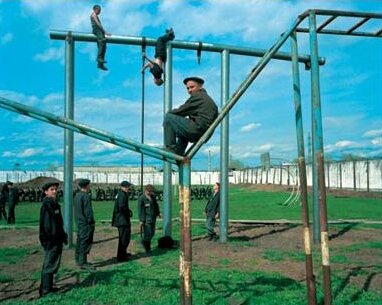
On the sports field in the youth camp [Karnsk]
|
Copyright © 2003 by Carl De Keyzer/Magnum
|